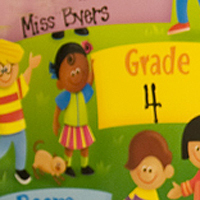Institute for Urban Education prepares students to teach in urban schools
When Destiny Byers first heard about the School of Education’s Institute for Urban Education (IUE), she thought UMKC just might be the university for her.
“I learned that I could receive a four-year scholarship with paid housing, meals, tuition and books,” said Byers. “It sounded like a good deal to me.”
In August of 2005, IUE was created to prepare students who could successfully teach in urban schools — the areas with the most urgent need — with a focus on math, science and literacy. To participate in IUE, students must commit to teach four years in the Kansas City School District after graduation.
Currently, there are 55 students enrolled in the program, and the goal is to enroll 20 new students for the 2009-2010 school year. In May 2009, eight students from the inaugural class will graduate. Byers is one of them.
As one of the few undergraduate programs of its kind in the country, IUE’s four-year program will lead to a Bachelor of Arts degree in elementary or middle school education. Even though the primary focus is math, science and literacy, students also study issues surrounding social justice and multicultural learning styles to better prepare them to serve a diverse population of students.
“The IUE is a nationally recognized model for urban teacher preparation. Destiny and other IUE graduates will have undergone a rigorous program of study with an emphasis on math, science and literacy, which includes more than 1,400 hours of field experience,” said Ed Underwood, director of IUE. “Destiny represents a new wave of teachers who will play a key role in strengthening the fiber of Kansas City and who will lead the way in building a healthy infrastructure for our schools and neighborhoods.”
As a 2005 graduate of Washington High School in Kansas City, Kan., Byers heard about the IUE program from her high school counselor and decided to apply.
Once she was accepted into the program, Byers was introduced to the members of her cohort — the group of students with whom she would spend the next four years. All their classes were together, and they spent their free time together. For Byers, the cohorts created a sense of family in a place where she knew no other students. Coincidentally, she and one of the cohort members had attended high school together. Although they didn’t know each other in high school, they now are best friends and spend lots of time studying.
The average class load for IUE students is approximately 17 hours, which allows for little free time. During her freshman year, Byers was reluctant to participate in school activities largely due to the class load, as well as her work in the Kansas City, Mo., Kansas City, Kan. or Hickman Mills School Districts, which is part of the IUE experience.
The field placements — assignments to work in the classroom — are a major part of the IUE program, allowing the students to gain first-hand experience in elementary and middle school classrooms.
 Beginning in her freshman year, Byers was more of an observer and occasionally worked with the students. With each successive year, she was given more responsibilities in the classroom — writing lesson plans for her use and teaching the class — while being coached by the classroom teachers.
Beginning in her freshman year, Byers was more of an observer and occasionally worked with the students. With each successive year, she was given more responsibilities in the classroom — writing lesson plans for her use and teaching the class — while being coached by the classroom teachers.
“The teacher I’ve been working with is fabulous,” said Byers. “She allows me to use different culturally-relevant teaching strategies and provides feedback and examples of what to improve and how.”
An important aspect of IUE is the feedback and mentoring students receive as undergraduates and upon graduation. IUE provides mentoring and induction support for the graduates during their first years of teaching. According to Underwood, one of the primary issues with teaching in an urban environment is a weak support system. IUE is making a concerted effort to provide that support.
In addition to receiving support from the partners in the program — faculty in the School of Education and College of Arts & Sciences, school districts and the UMKC Trustees — IUE students also receive support from the Chancellor’s National Advisory Board, which consists of eight members recognized for their work in business and education, which is a benefit to the students.
Byers believes she is right where she should be and is doing what she was taught to do — try her best, go after what she wants and if one person says no, ask someone else. She is living her destiny.

